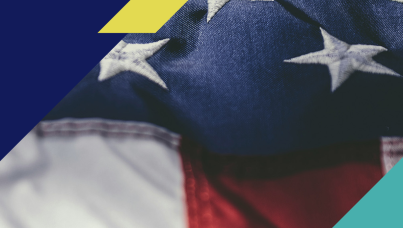Where Americans Are Turning for News About COVID-19
What you need to know:
- Political affiliation affects who Americans trust to give them accurate information about the coronavirus.
- Republicans tend to distrust the media; non-partisan institutions like the Centers for Disease Control, as well as state and local governments, are trusted by Republicans and Democrats alike.
- Misinformation about the coronavirus is still circulating, colored by which sources Americans turn to for news and information. Americans are showing signs of media fatigue with coronavirus news.
The United States is in uncharted territory as the coronavirus spreads across the country. In this time of unprecedented change, the question of who Americans trust to give them accurate information about the coronavirus is critically important. A coordinated, fact-based response to the coronavirus from all Americans is the surest way to contain the virus.
Yet, the pandemic is taking place in a time of historically low levels of trust in public institutions and when tribal divisions are particularly heated. In light of that, it should come as no surprise that political polarization has colored people’s response to COVID-19 information from the media and governmental sources. On a more optimistic note, some nonpartisan entities are rallying near universal levels of confidence during the crisis.
Ipsos polling conducted with multiple news outlets, including Reuters, Axios and USA Today, reveal some common themes around which institutions Americans trust the most to give them accurate information about the coronavirus.
The public institutions Americans trust most – and least
Americans are eager for news about the coronavirus. Analysis of web traffic conducted by the New York Times shows that readership for local and established news outlets is way up. The Centers for Disease Control (CDC) homepage has also seen tremendous growth in traffic since the beginnings of the crisis, now receiving upwards of 10 million visitors per day. While these sites may have seen a surge in traffic, Ipsos research underscores that trust is still politicized, except when it comes to certain non-partisan institutions and state and local governments.
Americans report high levels of trust in nonpartisan organizations like the CDC and the World Health Organization (WHO) to give them accurate information about the coronavirus. State and local governments are also viewed as trusted sources for information about COVID-19. Those levels of trust have not statistically changed week-to-week from mid-March, according to the weekly Axios-Ipsos Coronavirus Index.
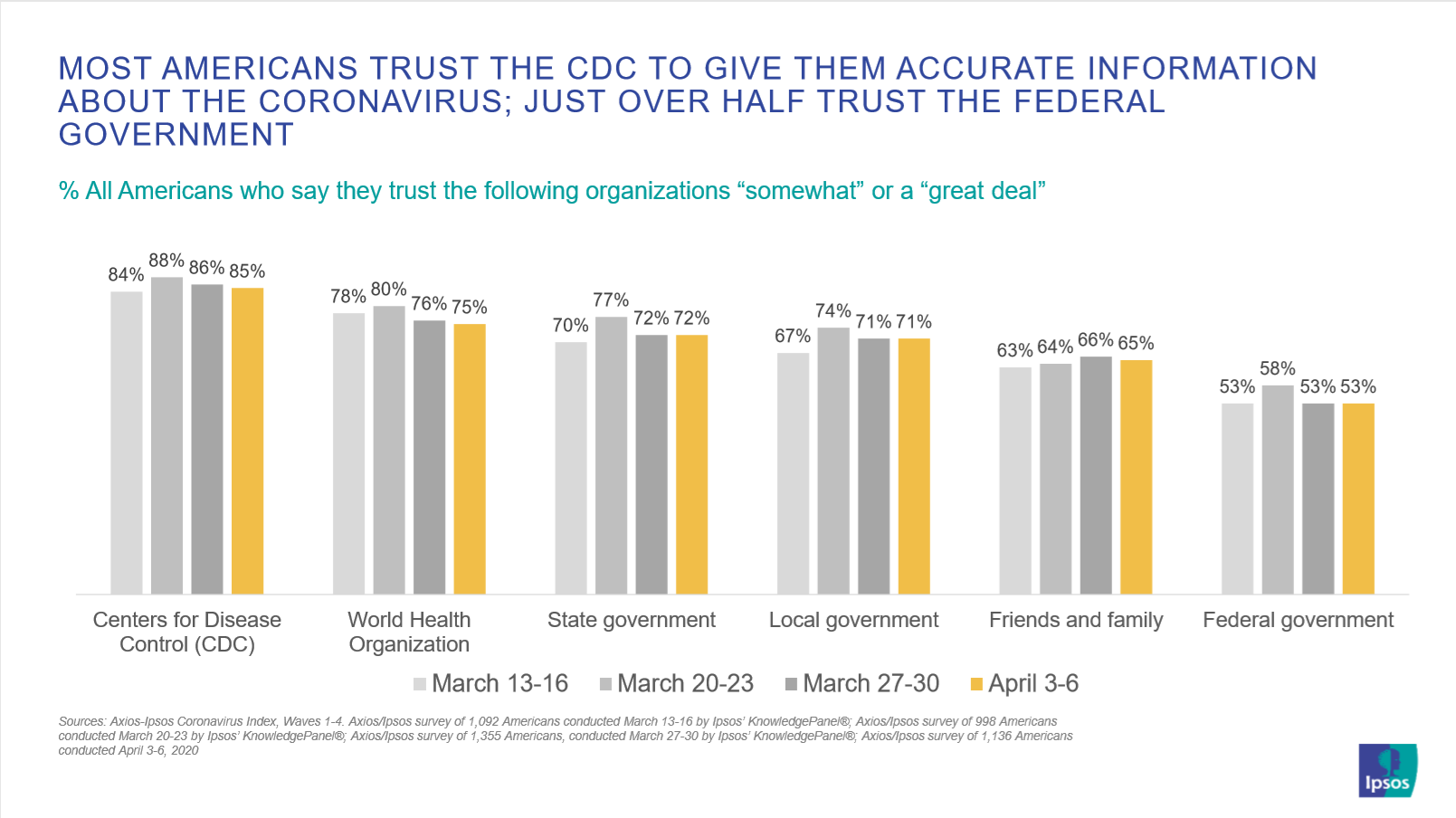
For the most part, trust in these key institutions is fairly evenly distributed across partisan lines, with a few exceptions. Less than half of Democrats say that they have faith in the federal government to provide them with accurate information about COVID-19, while three in four Republicans do. Republicans are also less likely to trust local governments and the World Health Organization than Democrats.
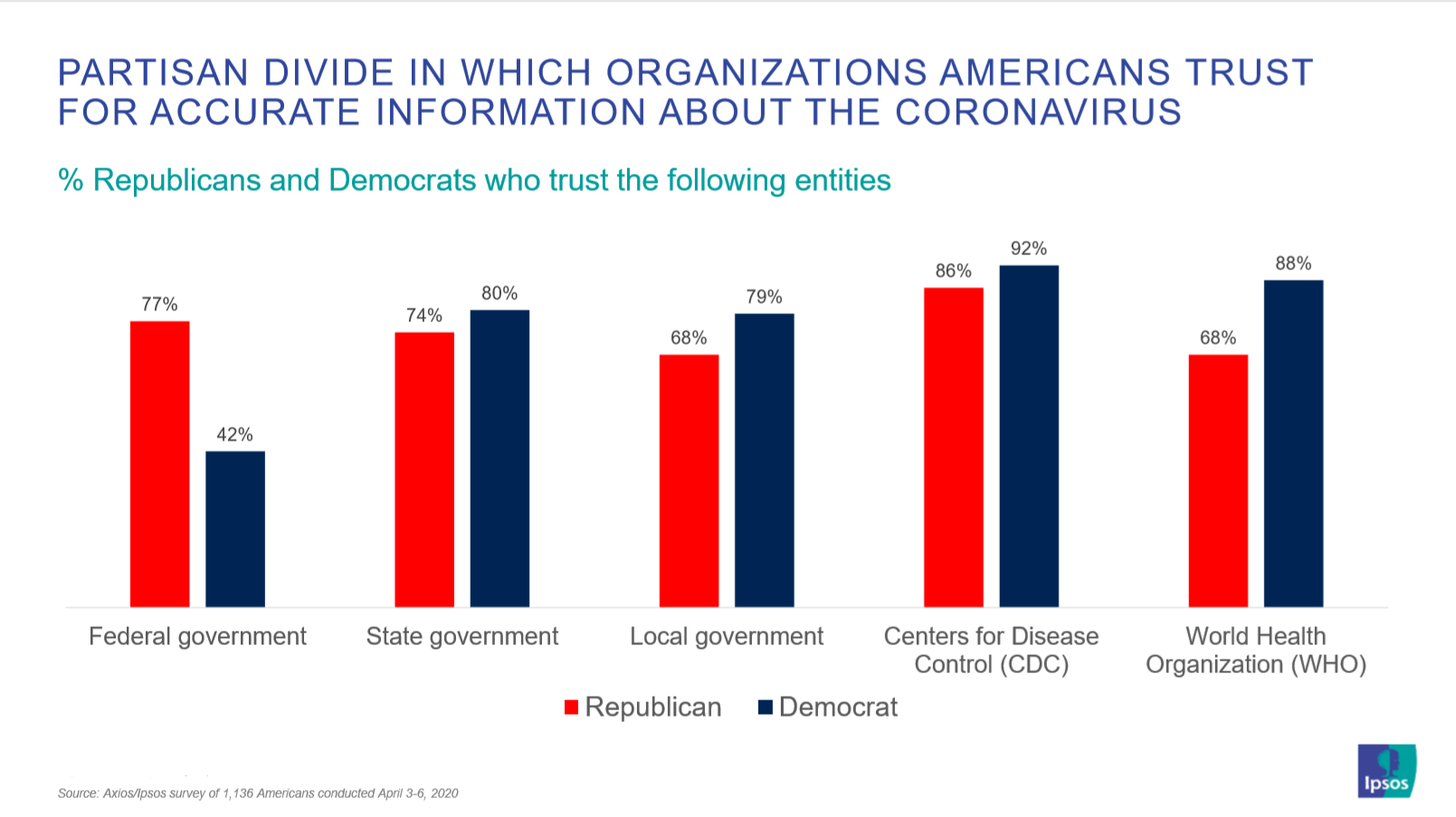
Levels of trust in the media vary by political affiliation
Americans are turning to a range of sources for news about the coronavirus, though FOX News, ABC, CBS and NBC News are among the most popular.
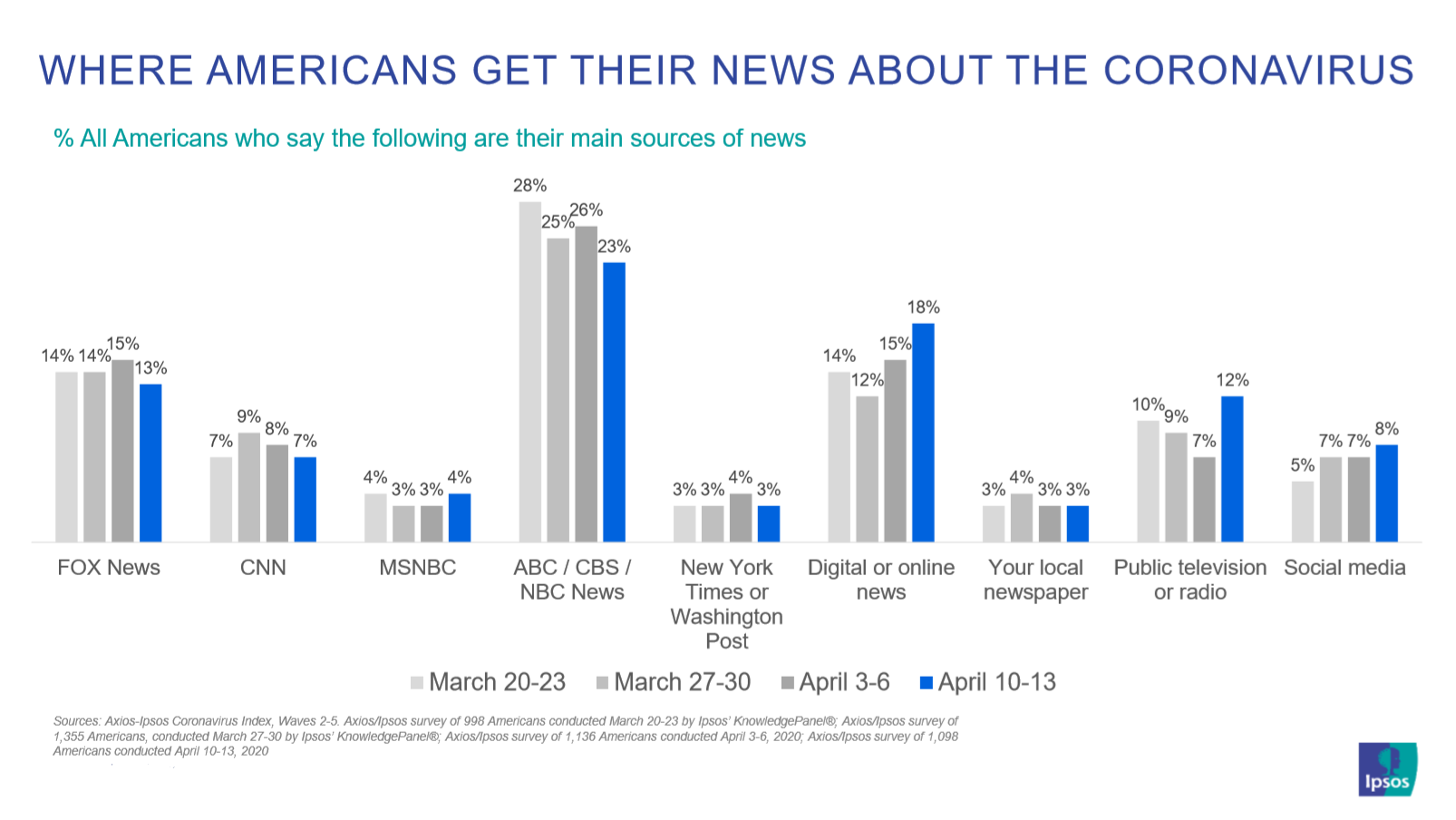
In the most recent Axios-Ipsos Coronavirus Index, a plurality of Republicans said they are tuning into FOX News while ABC, CBS and NBC News have the most cross-over appeal among the political parties.
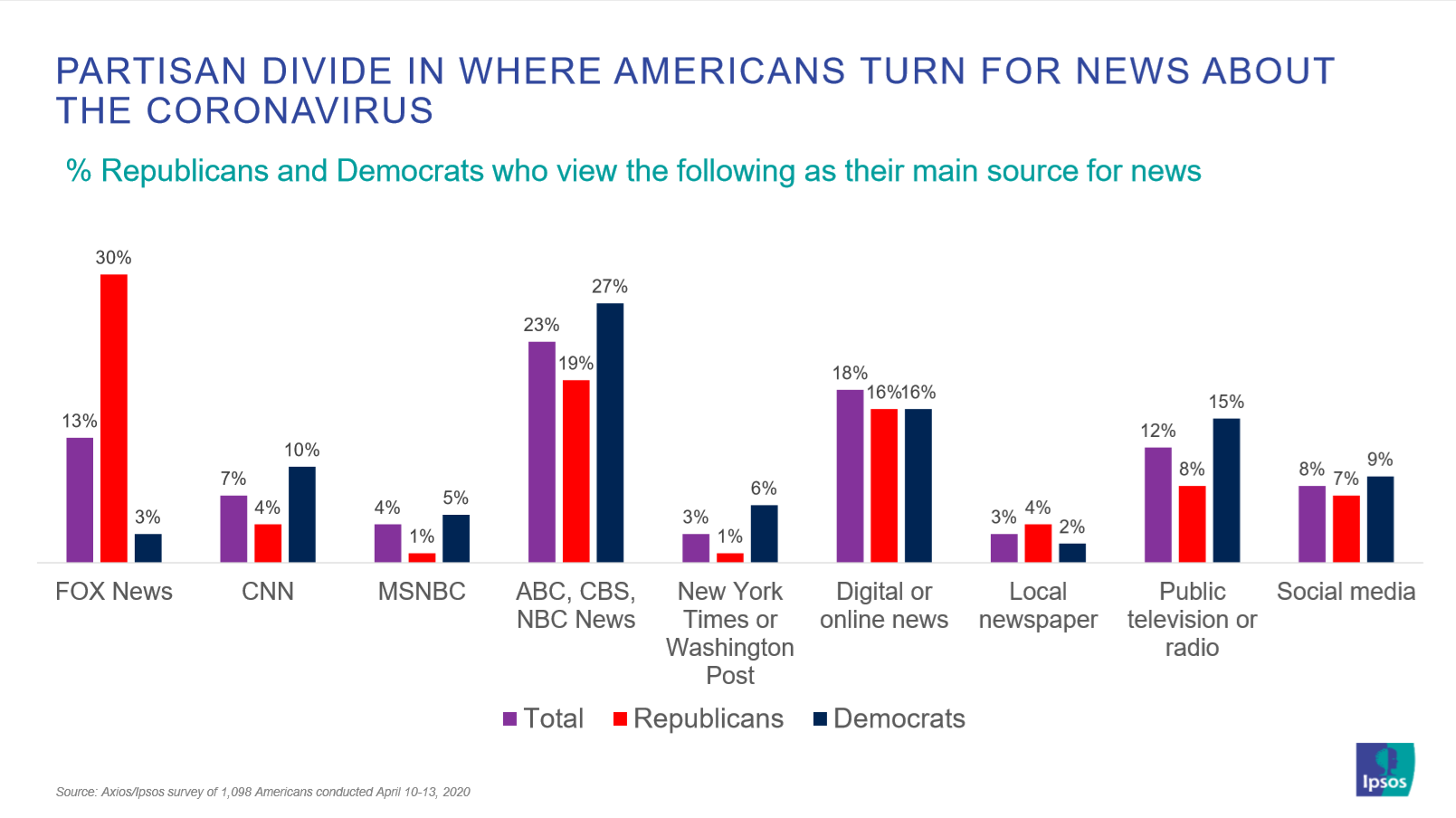
It should come as no surprise that many Republicans continue to be skeptical of the media, even during a pandemic.
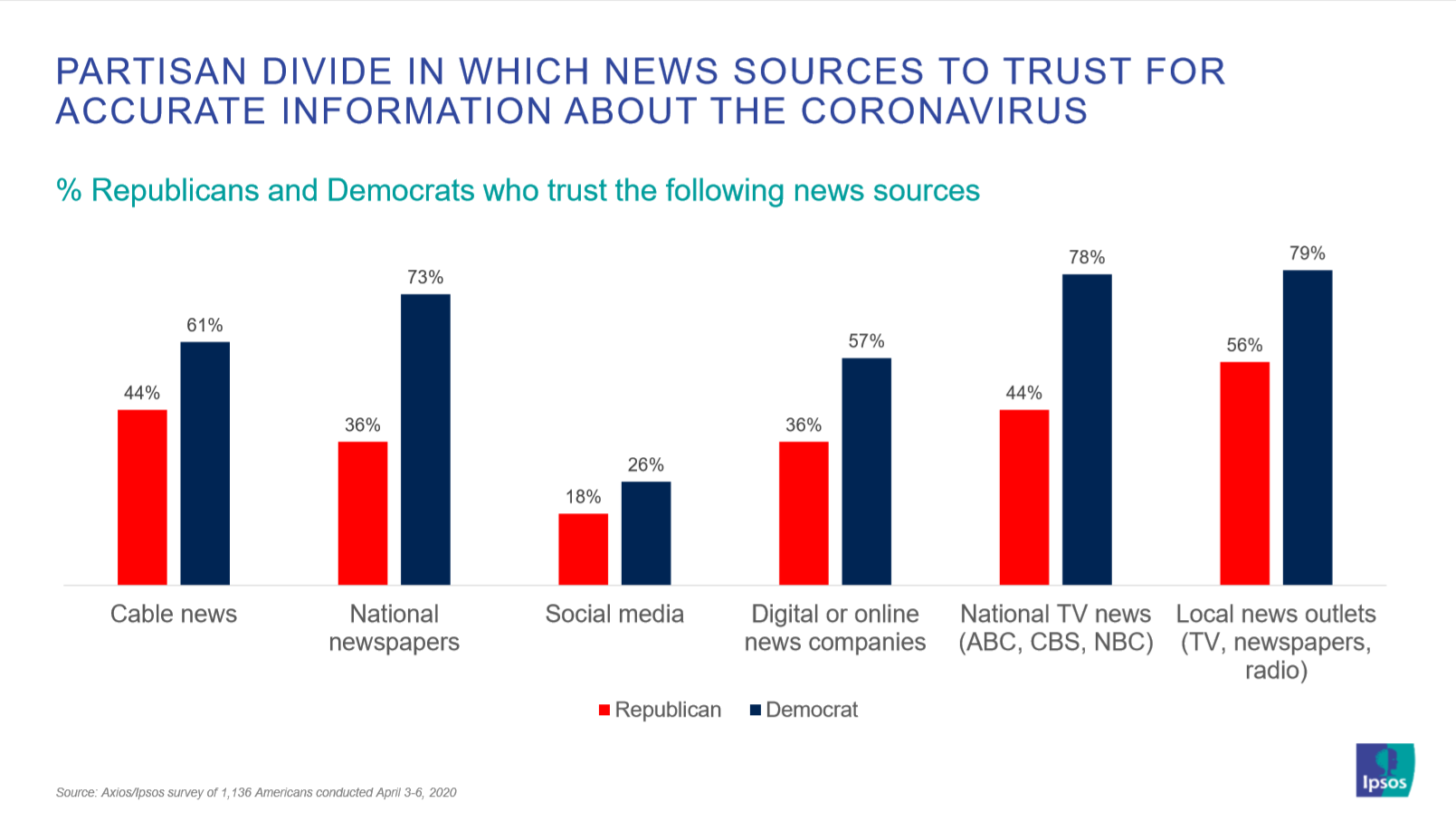
Distrust in the media is nothing new. Mirroring Trump’s most consistent rhetoric about the media and the coronavirus over the past few months, a majority of Republicans agree that fears about the coronavirus are overblown and being stoked by the media. According to the Ipsos/Daily Beast survey, 62% of Republicans believe that the media and Democrats are overstating the threat of COVID-19 in order to damage Trump’s presidency.
Yet, as the number of infections and deaths surge across the United States, opinion on that front may be changing, as the ongoing Reuters/Ipsos tracker attests. From mid- to late March, the percentage of both Republicans and Democrats who think that “people are unnecessarily panicking over the coronavirus” and that the panic is being fueled “by the media” dropped several points.
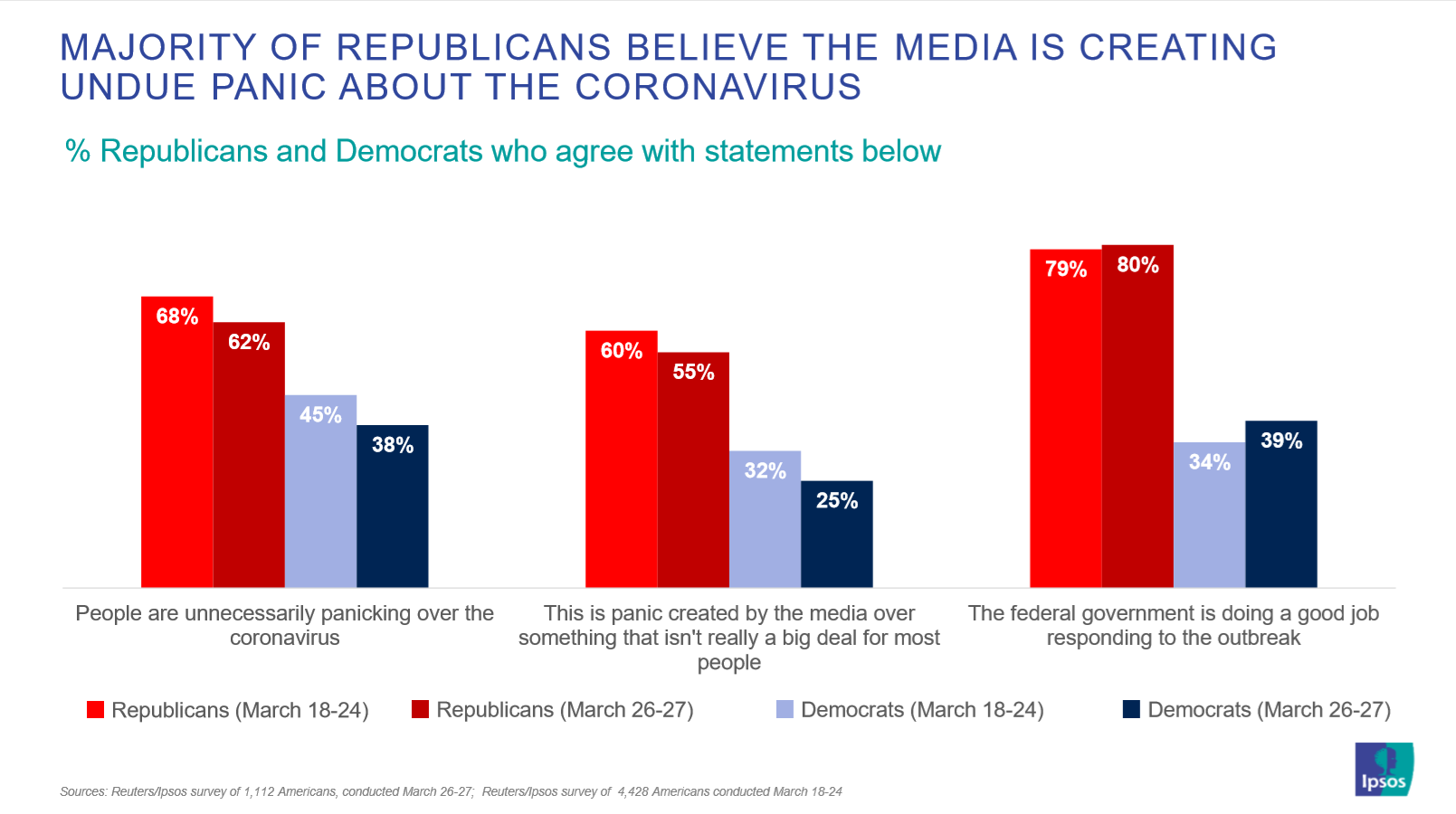
News fatigue
The pandemic is infiltrating every aspect of life including the news cycle, which is now almost exclusively dominated by coronavirus coverage. While Americans want to know what is happening, they are also showing some signs of fatigue with the news, particularly across political lines.
The majority Republicans feel that the news coverage about the coronavirus is “too much,” while the majority of Democrats feel that it is “about right.” News about the coronavirus is making 53% Americans feel stressed and 39% depressed.
Though all the COVID-19 news might be stirring up negative emotions, Americans acknowledge that it can be helpful. Close to half say that it is helping them stay well-informed about the virus, though Democrats are more likely to feel that all the coronavirus news is helpful on that front than Republicans.
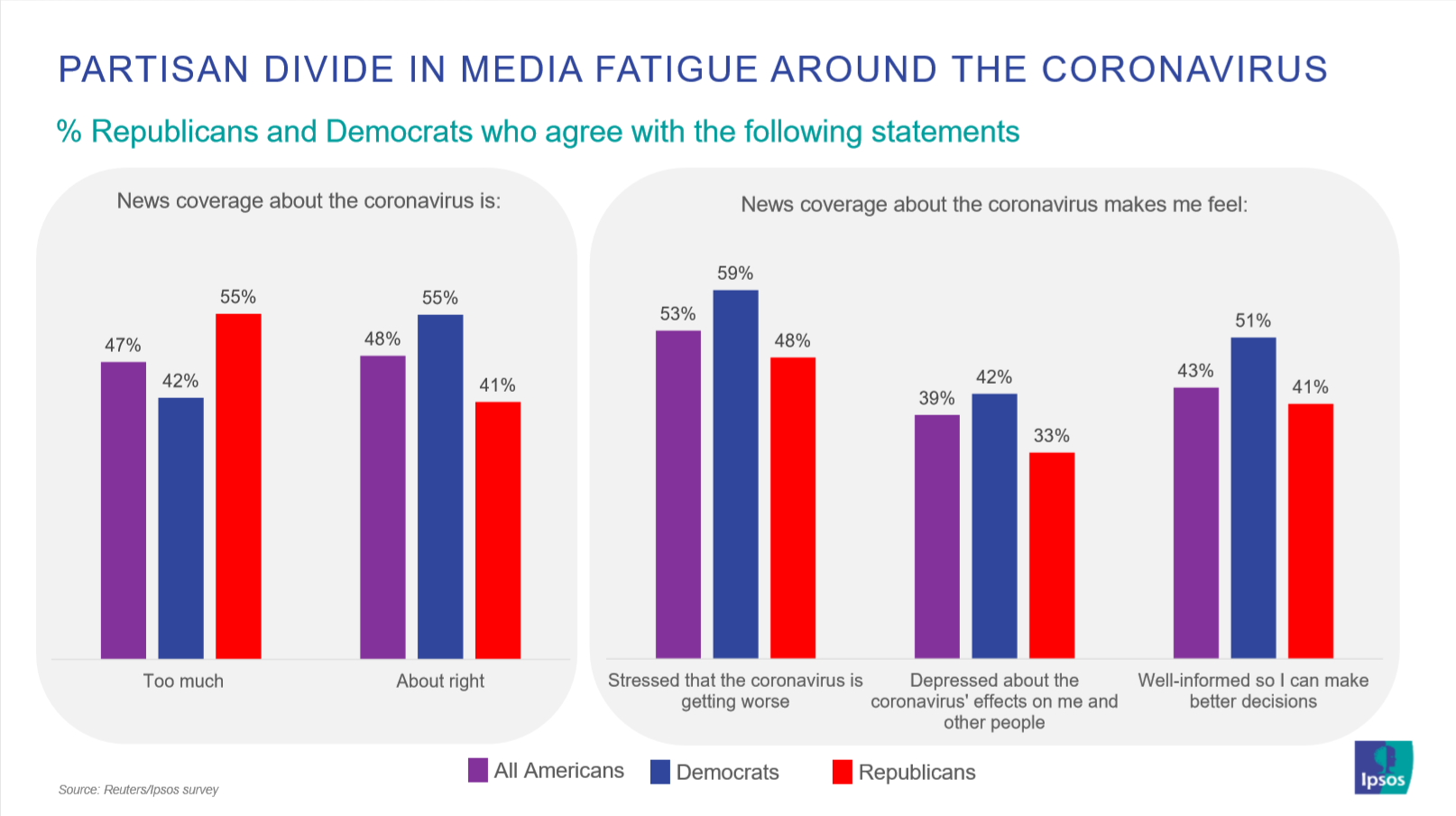
Misinformation about the coronavirus is still circulating
Though the majority of Americans, red or blue, trust the CDC and local and state governments to give them accurate information about the coronavirus, misinformation is still circulating, according to a recent Ipsos survey conducted with The Daily Beast.
Though most Americans can correctly identify misinformation about the virus, partisan affiliation plays a role in inaccurate beliefs about the coronavirus. For instance, 32% of Republicans say they believe that the FDA has approved anti-malarial drugs to combat the coronavirus, compared to 14% of Democrats.
In another example of dueling perceptions of reality, most Republicans’ estimates of when life will return to normal are far more optimistic than Democrats’. More than half of Republicans think that they will be able to return to their typical routines by June 1st, while just one in three Democrats do.
Implications of lopsided levels of trust
In a pandemic, a coordinated response is essential to containing the spread of the virus. Everyone has a responsibility to take action to mitigate a crisis that threatens the lives of somewhere between 49,431 to 136,401 Americans, according to the most recent projections from the University of Washington’s Institute for Health Metrics and Evaluation.
Polarized levels of trust in the media and public institutions are particularly damaging during times of crisis. At a very basic level, this has translated into an uneven spread of information and levels of concern about the coronavirus across the country. Ipsos research consistently shows that how Americans respond to the virus hinges on the extent to which their state and region has been impacted so far, and which messengers they trust to give them accurate information about it.

